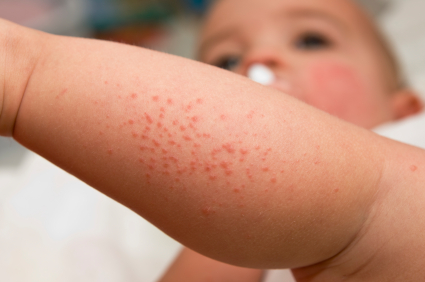by Andrew D. Bowser Contributing Writer, first published on MedPage Today
A new biologic approval and other clinical trial developments are encouraging news
With 3 biologics now approved for pediatric patients and more under investigation, the outlook is encouraging for children with moderate-to-severe psoriasis.
Still, according to pediatric dermatologist Megha M. Tollefson, MD, there’s much more work ahead.
“It’s never really enough until we really get a cure,” said Tollefson, an associate professor of dermatology and pediatrics at Mayo Clinic in Rochester, Minn. “Despite that, I’m pretty pleased with the way the community has come together and spread awareness — the fact that pediatric psoriasis exists, that it’s not just cosmetic, and that there are treatments that are desperately needed and that are safe.”
Clinical trials and approved therapies in pediatric psoriasis have indeed lagged behind the rapid expansion of systemic treatment options for adults over the past decade. Meanwhile, the incidence and prevalence of pediatric psoriasis appears to be on the rise, impacting as much as 2% of children by some estimates.
Despite recent developments in pediatric psoriasis treatments, considerable hurdles remain, Tollefson said. That includes how to thoughtfully prescribe biologics during the COVID-19 pandemic, and insurance issues that can limit access to some therapies.
“There definitely aren’t as many approved indications for kids, so we just have to work with what we have available to us,” Tollefson told the AAD Reading Room. “For example, kids that have been on off-label biologic medications for quite some time and done well — we’re getting notices that the insurance companies are no longer approving them. So in some ways, we’re going backwards, unfortunately.”
Current Treatment Options

In early 2020, the only 2 FDA-approved biologic options for pediatric patients were etanercept — for plaque psoriasis in patients 4 years of age or older — and ustekinumab — for adults and adolescents with moderate-to-severe plaque psoriasis.
Now a third biologic — ixekizumab — has been approved specifically for children and patients. On March 30, FDA had approved a supplemental Biologics License Application for this biologic in patients ages 6-18 with moderate-to-severe plaque psoriasis who are candidates for phototherapy or systemic therapy.
In a randomized, placebo-controlled phase 3 study including 171 such patients, more than half treated with ixekizumab had clear skin after 12 weeks of treatment, according to an Eli Lilly news release. Almost 90% of patients achieved a Psoriasis Area and Severity Index score — 75% improvement from baseline — and 81% achieved a Physician’s Global Assessment (PGA) of clear or almost clear skin (0/1) compared to 11% in placebo-treated patients.
“I think on the adult side, people have had a lot of success with this IL-17 antagonist, and so it’s fantastic to be able to have that indication for kids,” said Tollefson.

New Developments and Emerging Options
More developments could be on the way for ustekinumab, which has now been evaluated in patients under the age of 12, as well as for several other biologics currently in clinical trials.
This past October, Janssen announced that an application had been submitted to the FDA for ustekinumab in pediatric patients with moderate-to-severe plaque psoriasis. That application was based on results from the CADMUS Jr, an open-label, single-arm phase 3 study including 44 patients between ages 6 and 12.
Results of CADMUS Jr, published in the British Journal of Dermatology indicated that 77% of patients achieved a Physician’s Global Assessment score of 0/1 at week 12 , 84% had a PASI 75 response, and 64% had a PASI 90 response.
Several other interventional trials of systemic agents are recruiting patients as well, according to listings on the ClinicalTrials.gov website. A phase 2/3 randomized, placebo-controlled study of tildrakizumab is underway in about 120 young patients with moderate plaque psoriasis as well as an open-label study evaluating the safety, tolerability, and pharmacokinetics of brodalumab in 16 pediatric subjects who have severe plaque psoriasis.
“It’s encouraging and promising, but there definitely is more work that needs to be done,” Tollefson said. “It would be nice for these approvals to even happen concurrently (with adult approvals). Hopefully someday that would be a reality, and then being able to better and precisely identify, based on something objective, which medicine might be better for which child — that would also be a step forward.”

Note: Pediatrician Tips is strictly a news and information website about pediatrics. It does not provide medical advice, diagnosis, or treatment. This content is not intended to be a substitute for professional medical advice, diagnosis, or treatment. Always seek the advice of your pediatrician, physician or another qualified health provider with any questions you may have regarding a medical condition for any person. Never disregard professional medical advice or delay in seeking it because of something you have read on this website. The opinions expressed in this column are not always those of Pediatrician Tips and are intended to spark discussion about issues pertaining to pediatrics and pediatricians.






